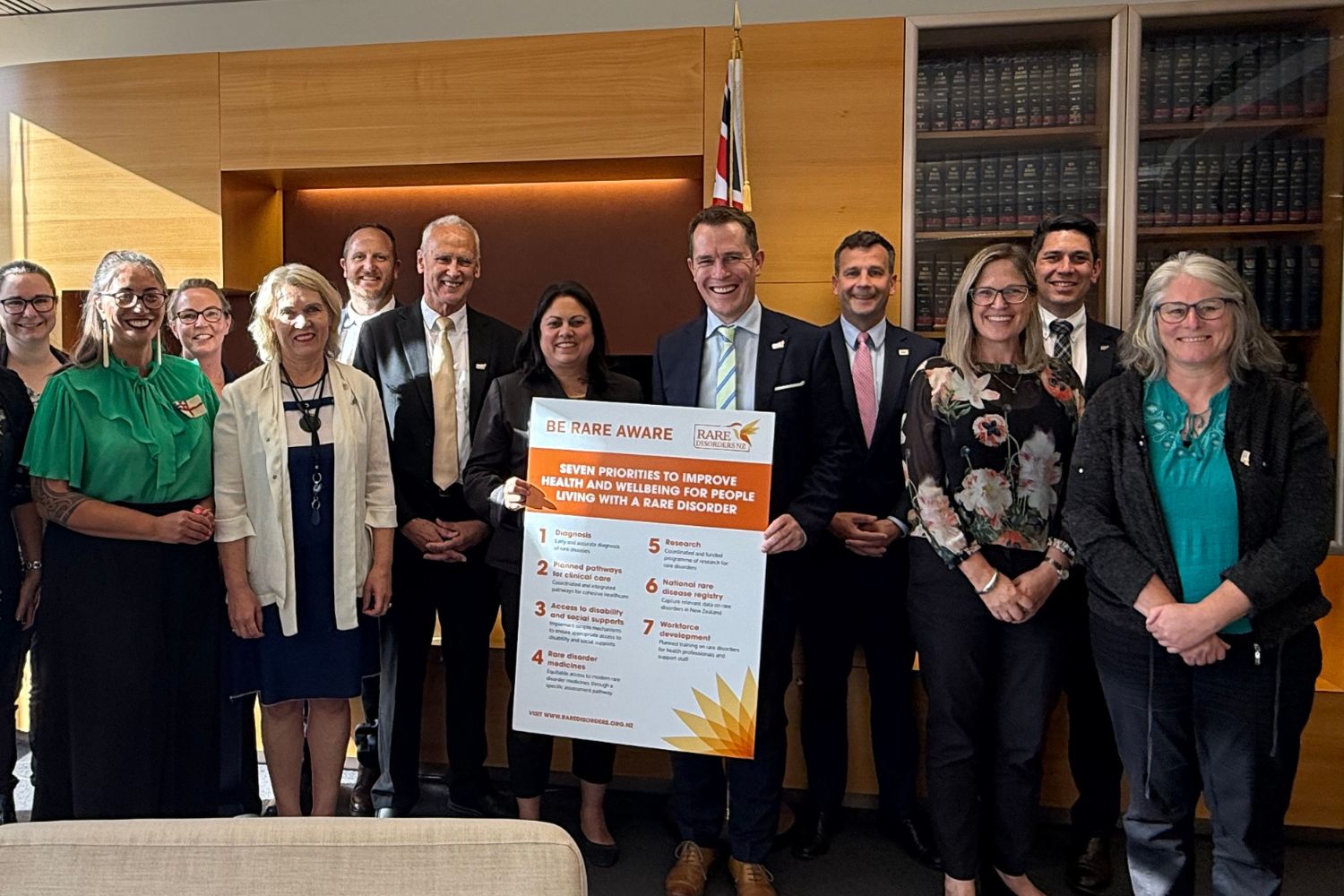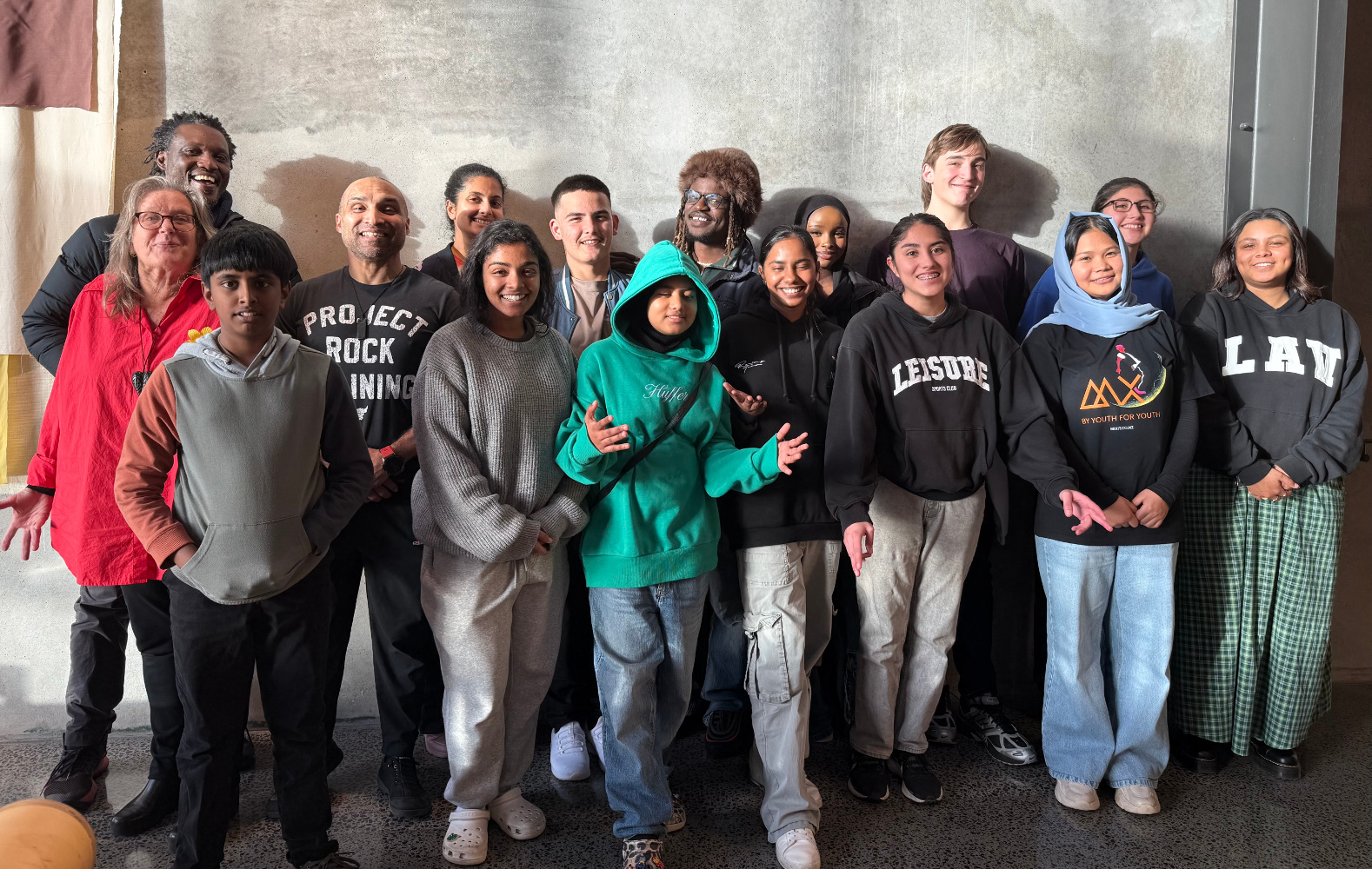2024 Alumni Charity Update: DCM
June 9, 2024

The invaluable work DCM does for Wellington's most marginalised would not be possible without the support of One Percent Collective donors. Here are some of DCM's success stories and updates from the past 12 months.
From a Bus Stop to a Home at the Beach

When DCM first met with Michelle, she listed her address as ‘Waterloo bus stop’. Michelle was very thin, and it was clear she had been roughing it for a long time. She was happy for the DCM team to work to get her housed.
Soon after the meeting, Michelle disappeared again, as her mental health challenges took hold once more.
We did not give up, searching for Michelle at some of her favourite spots. Michelle was sighted sleeping in doorways and on a mattress a member of the public had given her. Everyone was worried about her wellbeing.
This is a very familiar story for the DCM team. Mental health is an ongoing issue for many of the people we engage with, who often suffer from trauma and undiagnosed disorders.

Michelle became unwell and ended up in hospital, but while she was there DCM found her a permanent home. Michelle was delighted to be able to move in when she was discharged from hospital.
This is where the hard work really started. Sometimes, once people are housed, we start to understand what led to their homelessness in the first place. For Michelle, much of our support has been to address her health and wellbeing.
Michelle is now housed by the beach, which she loves. Her neighbourhood is great for walking, which she often does during the day to keep fit and healthy. Michelle also enjoys a close relationship with her mother and two daughters who now live nearby.

Michelle says she is “learning to trust people” again. She now sees how her life has changed in positive ways through her willingness to work with DCM. “I was homeless,” Michelle says, “There is no other way to describe it.”
Transforming lives at DCM
Access to adequate medical care is not always an option for the whānau we are working with. This is why we offer a range of hauora (wellbeing) services right here on Lukes Lane – where the most marginalised and vulnerable people in our city come. If we can make them feel welcome here, we know that the easily accessible services we have on-site can not only save lives, but start to transform lives, wherever people may be at.

Te Aro Health
Te Aro Health Centre has been working with DCM for decades to bring healthcare to the community. One of the nurses shares, “Te Aro Health provides primary healthcare services for people who are homeless or in precarious living situations, many of whom have mental health and addiction issues, and who suffer from the social determinants of health. We provide an outreach clinic at DCM three days a week where people can drop in and see us. It’s a great space because people feel comfortable coming here. Accessing the health services is an extension of their feeling comfortable in this space, and they can see us on their own terms.
“I think that the most important work is the collaboration between our services – because our patients have such complex needs, we really depend on having DCM involved. This improves health outcomes like getting them along to secondary specialist appointments they may not otherwise attend. So, we’re often liaising with DCM, at the outreach clinic and in our general work. We make sure the services we provide are appropriate for them – are working for them. Or how can we be flexible to provide something else that meets their needs?”
30 to 45 whānau per week on average visit the Te Aro Health outreach clinics at DCM.
Dental Service
The cost-of-living crisis is affecting us all, and none more so than those who are already vulnerable, where expensive trips to a dentist may need to be sacrificed for something else. Fortunately, DCM provides a free dental service for people experiencing homelessness who are in urgent pain. It’s free thanks to dentists and dental assistants taking time away from private practices to treat our whānau in DCM’s fully equipped dental clinic.
Dr. Sophie McKenna, head of our dental service, says “Dental pain is all consuming…to take them out of pain allows the head to clear a little. Maybe the advice and support that the DCM key workers are offering them – maybe can be taken on board that little bit better.
“And then it becomes a cycle of everything on the mend for just getting that tooth fixed.”

Sophie also comments on how different the DCM service is to other dental clinics and the positive nature of the experience for whānau.
“I’ll say, ‘What’s the most important thing that I can help you with today?’ And they look astonished. They are normally told to lie back, open up, and then a health professional gives them a carefully worded lecture about what isn’t being done, how disastrous things are.
“And that’s not what we’re here for. We’re here to make them feel better.”
Physiotherapy
Pain can be a familiar part of life for our whānau. Jeff Dixon, our volunteer physiotherapist comments, “Rough sleeping and lack of adequate housing can make it difficult to sleep in a comfortable position. The lack of sleep and psychological stress can then make pain worse.”
Jeff sees whānau with a host of issues when they come through the doors at DCM, having treated “a variety of injuries – from simple sprained ankles to the results of stab wounds.”
Jeff has been coming to DCM for over four years now, every fortnight, on a Friday. He usually sees a mixture of new patients, and those with long-term conditions who benefit from – to quote one of our whānau – his “magic hands”.
Audiology
Life is better when you can hear well. Our physical health services are growing as Clare, an otolaryngologist (ear, nose, and throat specialist), is coming on board to offer ear wax suction on-site at DCM. This has been a significant unmet need for our people for quite some time.

We find that many of the people working with us at DCM suffer from hearing loss, which often goes back to the root causes of poverty. For example, we know that one of the most common causes of acquired, permanent hearing loss in children is meningitis.
Pātaka Kai
DCM has long had a Foodbank, and we acknowledge that kai is another way that we can support someone’s physical health. Sometimes the Foodbank can be an entry point into DCM services – and we can then move beyond kai to try to understand what other supports people may need. But in the meantime, kai supports sustenance, ensuring whānau have access to nutrition to prevent any debilitating of their tinana.
Te Awatea
Mental health and addictions are often co-occurring issues in the lives of our whānau. Our Te Awatea programme looks at addressing both through education and group work.
Harm reduction is often the only model that can work for our people, who may have chronic conditions, face barriers from their past, and find it hard to access traditional addiction services.
But despite the challenges, the strength of our whānau in seeking help does not go unnoticed by our staff who are often taken aback by their commitment to improving their wellbeing.

Rowan, DCM’s Kaiārahi Piki te Ora, comments that there can be a vicious cycle when it comes to the treatment of mental health issues for those who are rough sleeping. She comments that the under-resourcing of the mental health sector in Aotearoa can lead to whānau, “Being on the (mental health) ward for two weeks and then being discharged to the streets. If they are lucky, they will be placed under the TACT team, who come out to find them and give them an injection.”
We find that whānau can often lose touch with their mental health team, resulting in them being placed back on the ward – only to end up on the streets again or in emergency accommodation and evicted if they suffer a relapse. There is a high risk of suicide in those who are experiencing homelessness or who are at risk of homelessness. We know – again, from experience – that receiving mental health support can save someone’s life and prevent tragedy.
Sitting in the heart of Wellington, the most marginalised people in our city come to us because they genuinely feel welcome and because what we do works, and makes a difference in their lives.
But we acknowledge that we can’t do this mahi alone. We rely on the community to support us. At DCM, we truly believe that ‘together we can end homelessness’.
Words and images supplied by DCM
Support DCM with your 1%
Help DCM to continue providing a range of essential services for people who are homeless or at risk of homelessness, with just 1% of your annual income. For the average Kiwi, that's only $10 per week. Support DCM with your 1%.



